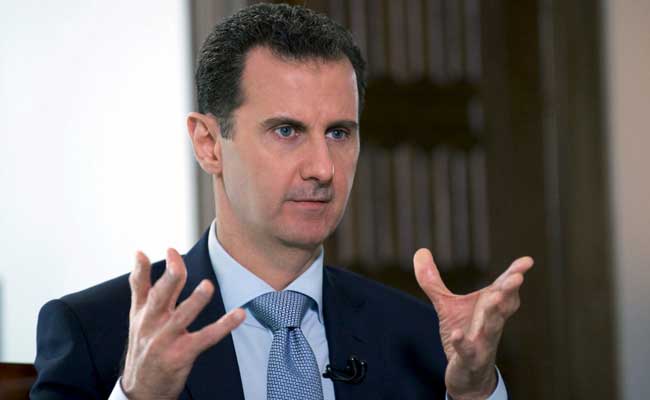Qatar, Kuwait, and Morocco also opposed Syria’s readmission to the Arab League, a historic move western media describes as a ‘rejection’ of US interests in West Asia
The US government says it will continue enforcing unilateral sanctions against Syria despite its readmission into the Arab League.
“We do not believe Syria merits readmission into the Arab League at this time,” a US State Department spokesperson said on 7 May, highlighting that the White House has informed its allies in West Asia that “we will not normalize with the Assad regime and that our sanctions remain in full effect.”
The US statement came just hours after foreign ministers from Arab League member states met in Cairo to approve Syria’s return to the regional bloc, in what western media describes as a “rejection of US goals” in West Asia.
“The decision to readmit Syria to the Arab League represents a rejection of US interests in the region and shows that [West Asian] countries are forging policies independent of Western concerns,” the Wall Street Journal (WSJ) said on Sunday.
“The Arab rush to welcome Damascus back into the fold happened despite public objections from the United States … [US] efforts at easing Mr. Assad out and replacing him with an inclusive, democratic government have gone nowhere, leaving American officials on the sidelines,” the New York Times (NYT) lamented.
The NYT goes on to say that Washington – realizing they had no recourse to stop normalization – “urged” its Arab allies to “exact a price” from Damascus, with emphasis on reducing Iranian military presence in Syria.
Qatar also expressed strong rejection of Syria’s return to the Arab League on Sunday, with a foreign ministry spokesperson saying that the new consensus should serve as “a motive for the Syrian regime to address the roots of the crisis.”
Doha remains one of the main instigators of the western-backed war in Syria through its funding of extremist groups. Al-Jazeera – Qatar’s most prominent media outlet – also served to spark the conflict due to its often biased and inciteful coverage of events in Syria at the time.
According to an in-depth investigation by The Cradle, Qatar’s adversarial footprint in Syria has continued unabated, with Doha upholding ties with extremist groups, including the Al Qaeda-affiliated Nusra Front (which controls Idlib governorate and areas in the countryside of Aleppo), and has transformed the Syrian embassy in Doha into an operations room for adversaries of Syria.
Last year, Bashar al-Jaafari, Syria’s Deputy Minister for Foreign Affairs, claimed that one of the main reasons behind the start of the war in Syria was Damascus’ refusal to accept the construction of a Qatari gas pipeline.
“One of the reasons for the war on Syria was the refusal [by Damascus] to extend the Qatari gas pipeline to Europe via Turkey to thwart the Russian pipeline,” the deputy foreign minister said at the time.
The Grade


Leave a Reply
You must be logged in to post a comment.